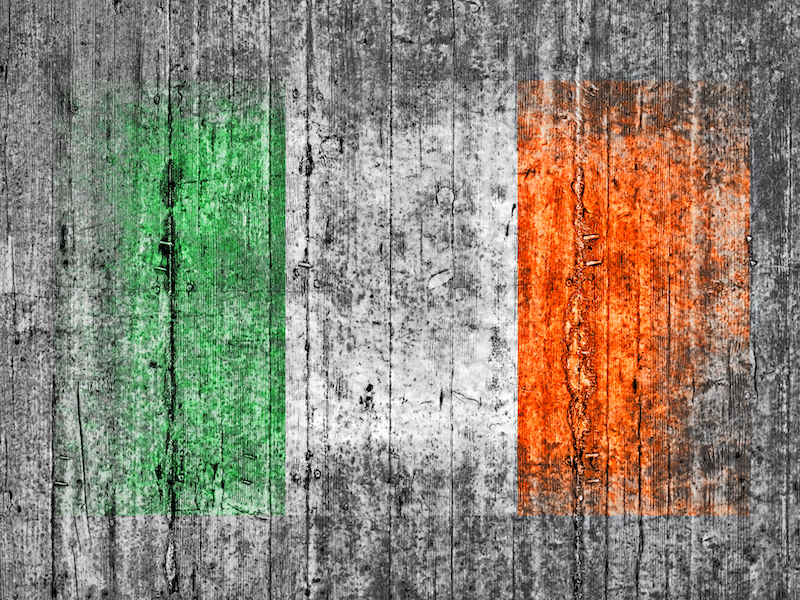Uncategorized
Economists Baffled By 26% Growth Figure In Ireland

A jaw-dropping 26% increase in the GDP (Gross Domestic Product) for the economy of Ireland was reported for the last year, 2015.
Some explanations have been given to explain this outstandingly sharp spike.
After the report had come in, analysts were left speechless and then scrambled to come up with some plausible explanations.
As can be seen in the chart below, the real gross domestic product report for the first three-quarters of 2015 is giving some indication as to what the final report for the year might gauge.
The GDP earnings for the rest of the Eurozone are considerably diminished in comparison:

The latest report for last year came in and did not disappoint the trend predicted by the previous chart.
As can be observed from the graph below, the GDP earnings reported for the last quarter of 2015 show escalation that is almost out of sync with quarterly reports from previous years.

To go into some explanation for this peak in GDP earnings in Ireland it is first necessary to:
- Explain why analysts are confounded
- Explore if the spike is driven by foreign companies that have relocated to Ireland.
The British-Irish Trade Association is due to meet, and the state of the Irish economy will be the leading topic.
As yet, an explanation for the growth surge is still being sought out.
Officials from the Central Office Statistics announced the new figures to a gathering of reporters and economists last Tuesday.
They had predicted a growth of around 7.8%, so the latest findings are roughly three times that figure.
An independent economist, Jim Power, commented that to say the economy increased by 26% would be erroneous.
It is necessary to look into the real meaning behind the cause of the increase.
The most plausible explanation for the figure is that Ireland has an open and transparent nature regarding its economy, and this is seen as a desirable feature for U.S. companies.
Ireland’s 12.5% tax rate is accessible to U.S. companies too.
Some of the U.S. firms that have invested in Ireland, mostly via acquisitions, are:
- Perrigo Co.
- Jazz Pharmaceuticals Plc. Corporations.
The two companies listed above have overseas assets of 523 billion Euros (US$580 billion).
They were headquartered in Ireland in 2014, and in 2013 they had earnings of 391 billion Euros – so the gains in the relocation period would be reported as a boost to the economy of Ireland.
[ms_divider style=”normal” align=”left” width=”100%” margin_top=”30″ margin_bottom=”30″ border_size=”5″ border_color=”#f2f2f2″ icon=”” class=”” id=””][/ms_divider]
[ms_featurebox style=”4″ title_font_size=”18″ title_color=”#2b2b2b” icon_circle=”no” icon_size=”46″ title=”Recommended Link” icon=”” alignment=”left” icon_animation_type=”” icon_color=”” icon_background_color=”” icon_border_color=”” icon_border_width=”0″ flip_icon=”none” spinning_icon=”no” icon_image=”” icon_image_width=”0″ icon_image_height=”” link_url=”https://offers.thecapitalist.com/p/warrenbuffet/index” link_target=”_blank” link_text=”Click Here To Find Out What It Said…” link_color=”#4885bf” content_color=”” content_box_background_color=”” class=”” id=””]Warren Buffett Just Told His Heirs What He Wants them To Do With His Fortune When He Dies. [/ms_featurebox]
[ms_divider style=”normal” align=”left” width=”100%” margin_top=”30″ margin_bottom=”30″ border_size=”5″ border_color=”#f2f2f2″ icon=”” class=”” id=””][/ms_divider]
Ireland is a relatively private economy and any considerable amount of assets that increase in earnings will reflect in a spike.
That is one of the explanations given to verify the earnings as believable.
Ireland’s Finance Minister, Michael Noonan, pointed out in a statement, that the significant growth numbers had obscured the deficit ratios and debt that Ireland still carries.
The less optimistic view is that there can be a downside to the apparent positive figures.
The tax inversions have temporarily given a false reading to the size of Ireland’s economy.
When companies, such as the ones listed above, choose to base their headquarters in Ireland, all of that company’s profits internationally and globally can be counted as a portion of the host country’s gross national income.
This is the reason that was given according to the Irish ministry.
Corporate relocations and the enormous earnings potential that the same companies post annually have boosted the economy of Ireland by 7 billion Euros since 2008.
It does not necessarily follow that this added growth and earnings have had a trickle-down effect on the earnings of the population in the form of employment and salaries.
This is what concerns the ministry the most.
The reports on the GDP of Ireland will elevate the contributions that have to be made to the European Union’s budget by the country.
The size of the country’s GDP determines the amount.
The concern is that, with foreign investment inflating the GDP but not contributing to the spending power of the Irish people, this may place an undue burden on the general population.
Analysts are still picking apart the reasons for the exact explanation as to the increase, however.
It may not be explainable by foreign headquarter relocation alone.
Ireland’s growth continues at a steady pace that is not in tandem with dramatic reports recently announced.
Maybe just too many transactions are happening to be able to fathom right now reasonably.







